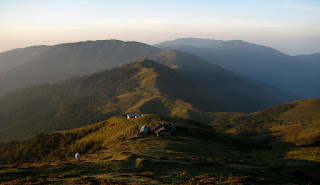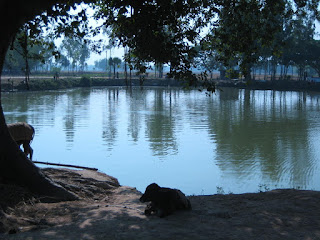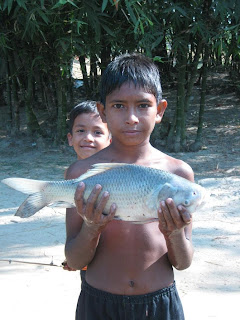With the Eid and Durga Puja holidays falling close together this year, everything was shut down for about a week. Together with my house-mates, I headed across the border to India, up to Darjeeling for the week. From there we set out hiking up to Sandakphu (3600 m, 12,000 ft). Behind Nate and Phil is Kachenjunga, third highest peak in the world.

Here it is again with our trekker's hut in the foreground.

Looking the other way is our trek for the next day, following the ridge that divides India and Nepal. Everest and the Annapurna range are in the background.

We didn't meet many people that day of hiking -- just a few Nepali boys out taking care of their sheep and yak ...or playing football (soccer). Here's one of their fields, with the Nepal/India border stone in front. What you don't see in the picture are the thousand meter drop-offs on either side of the field.

Looking back on the day's trail and down on our second night's stop, the trekker's hut at Phalut. Sandakphu is the last bluish hill in the distance. That day along the ridge is certainly one of the most beautiful walks I've ever done.














